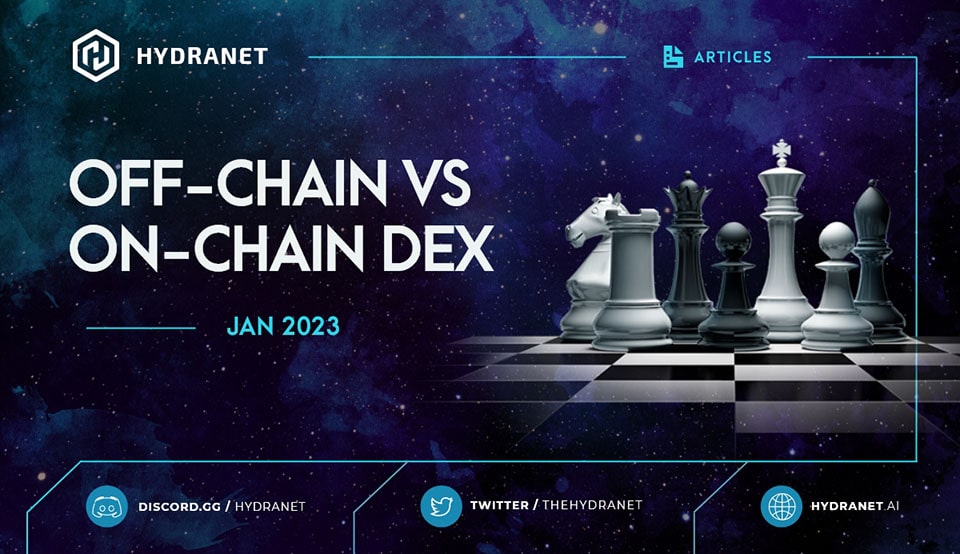Decentralized Exchanges (DEX) are becoming increasingly popular as a way to trade cryptocurrencies in a more decentralized and secure manner. They offer many advantages, such as increased control over your funds, no central point of control, greater transparency and fairness in trading, and more. However, they typically suffer from drawbacks such as slow transaction speeds and high trading costs. These issues typically lead to lower liquidity and lower trading volume on DEXs compared to Centralized Exchanges (CEX).
The vast majority of DEXs are so-called on-chain DEXs. On-chain DEXs operate on the blockchain. This means that all trades and transactions are recorded and confirmed on the blockchain, making them transparent and tamper-proof. However, because all transactions are recorded on the blockchain, on-chain DEXs can be slow and expensive, depending on the state of the blockchain. One of the most popular and widely spread on-chain DEX is Uniswap. It is a protocol on the Ethereum blockchain that allows users to trade in a decentralized way. Uniswap pioneered the automated market maker model (AMM), which allows users to trade against a liquidity pool that offers a constant source of liquidity. Anyone can provide liquidity to the pool and earn trading fees. Some other examples of on-chain DEXs are: Binance DEX, 1inch, and Curve finance.
Many different projects are working on improving the scalability and usability of DEXs, Hydranet DAO is one of those projects. Hydranet DAO aims to solve these problems by using Layer 2 off-chain solutions. Off-chain solutions refer to methods of conducting transactions or performing computations outside of the blockchain network. This can include using a separate network or database to manage transactions, or using a system of smart contracts to facilitate the transfer of assets without the need for every transaction to be recorded on the blockchain. There are many benefits with off-chain solutions:
- Scalability
Off-chain solutions can handle a large number of transactions per second, which can help to improve the overall scalability of blockchain networks.
- Privacy
Off-chain transactions are private. Only the user will have access to the trading history, which can help to protect the personal information of individuals and organizations involved in the transactions.
- Low costs
Off-chain transactions are less expensive to conduct than on-chain transactions, since they do not require the use of the blockchain network"s resources and computational power.
- Fast settlement times
Off-chain transactions are settled faster than on-chain transactions, since they do not need to be confirmed by the blockchain network"s consensus mechanism.
- Flexibility
Off-chain transactions can allow for the use of different types of digital assets and can be used to facilitate complex financial transactions such as derivatives and atomic swaps.
If you want to explore these benefits and experience an off-chain DEX firsthand, head over to the Hydranet website and download the latest version of the Hydranet DEX!


Leave a Comment